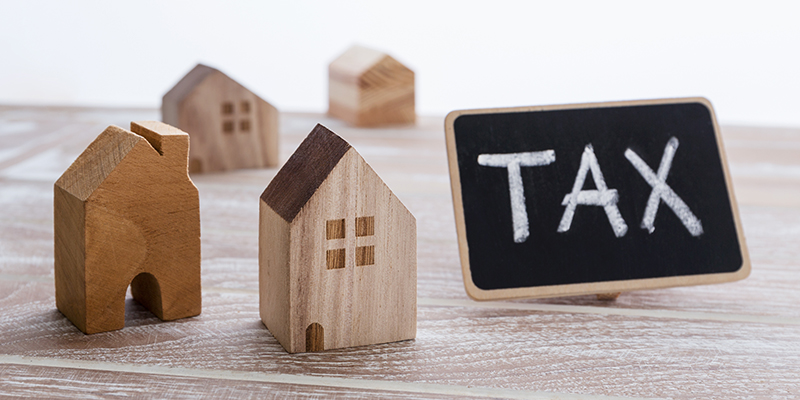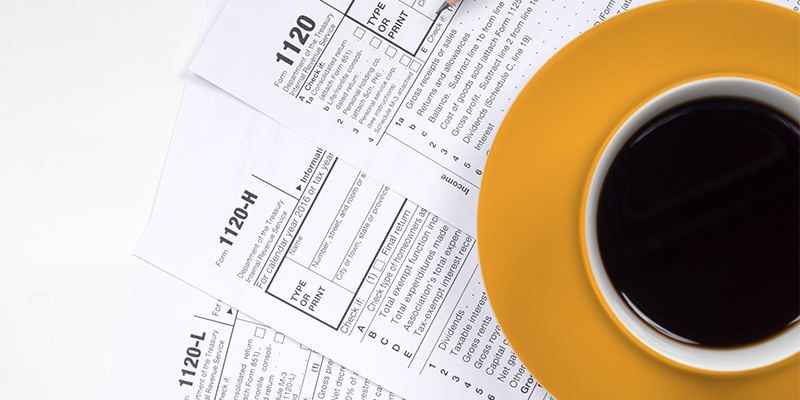What Every Homeowner Should Know About HOA Taxes
The subject of HOA taxes can be a source of frustration for many homeowners associations. But, do HOAs have to pay federal and state income taxes at all?
HOA Taxes: Understanding Federal and State Requirements
A majority of homeowners associations are incorporated as nonprofits in their state. But, just because an HOA is organized as a nonprofit does not mean it is automatically exempt from paying taxes or filing tax returns. At the federal level, all homeowners associations do need to pay taxes and file their tax returns. The only exception to this is if the association is recognized by the Internal Revenue Service as an exempt organization under 501(c)(4). But, qualifying for that exemption is rare for an HOA.
To file homeowners association taxes at the federal level, it is necessary to complete and submit either Form 1120 or Form 1120-H. Most associations prefer filing Form 1120-H because it is simpler and provides certain tax benefits. Either way, though, board members should hire a Certified Public Accountant (CPA) to help them fill out the form and gather all supporting documentation.
But, what about state income taxes? Do homeowners associations have to pay taxes to their state government? More often than not, the answer is yes. However, there are some exceptions. A handful of states don’t collect income tax from corporations, which homeowners associations typically fall under.
Additionally, every state may have its own set of requirements and deadlines for filing a state HOA tax return. States also usually have different forms to complete and varying rules when it comes to filing extensions. As such, it is best to seek the help of a CPA to help with your state tax filing process.
Are HOAs Exempt from Taxes?
Homeowners associations are generally NOT exempt from income tax. But, there are a few states that don’t collect income tax from corporations. These are Nevada, Ohio, South Dakota, Texas, Washington, and Wyoming. Although Alaska and Florida do not have state individual income tax, they do collect corporate income tax. Regardless of state income tax laws, though, associations still generally need to pay and file federal income tax returns unless otherwise exempted.
Nevada
Nevada does not collect corporate income tax, but it does tax organizations that employ workers. As such, if an HOA reports gross wages to the Nevada Employment Security Division (NESD), it must pay the state’s modified business tax. Moreover, the HOA must file a return for the modified business tax with the Department of Taxation. Corporations automatically receive modified business tax returns from the NESD after registering with the Department of Taxation. There is also an option to download the forms through the department’s website.
Ohio
Ohio also does not collect corporate income tax. However, it does collect a commercial activity tax (CAT) as well as a sales & use tax. Homeowners associations generally don’t have to pay CAT. but, if an HOA is involved in selling goods, it will need to file a sales & use tax return with the state. Additionally, homeowners associations don’t need to pay a state franchise tax if it solely consists of residential properties.
South Dakota
South Dakota is another state that does not have a corporate income tax. This means that homeowners associations don’t need to pay or file their income tax with the state. It is worth noting, though, that HOAs still need to pay and file their federal tax returns.
Texas
Texas does not have a corporate income tax. Therefore, homeowners associations are not required to pay or file a corporate income tax return with the Lone Star State. That being said, homeowners associations are still required to pay and file their federal tax returns. Texas also has a gross receipts tax that associations must pay.
Washington
The state of Washington does not collect personal or corporate income taxes. As such, homeowners associations need not pay or file state income tax returns. However, HOAs are still required to pay a gross receipts tax (business and occupation tax).
Wyoming
Wyoming also does not collect personal or corporate income taxes. This means corporations like homeowners associations don’t have to pay or file state income tax returns. Still, they do need to pay and file federal income tax returns.
For Homeowners: Are HOA Fees Tax Deductible?
Tax season is often a pain point for homeowners. Not only does it mark another expense to deduct from their household budget, but filing tax returns can also bring headaches. It is not always easy to understand how taxes work, and figuring out which expenses are deductible only adds to the frustration. One thing that a lot of homeowners want to know, though, is whether or not they can deduct HOA fees from their personal taxes.
 In general, HOA fees are not tax-deductible. But, there are some instances where owners can deduct them, such as:
In general, HOA fees are not tax-deductible. But, there are some instances where owners can deduct them, such as:
- If an owner uses their home or condo as a rental property (if the owner rents out only a portion of the property, they can deduct a percentage of their HOA fees)
- If an owner uses their home or condo as a business (they can’t deduct the entire amount but only a portion of it)
For owners who only rent out their homes for a few months out of the year, fees are deductible for the months when the home functions as a rental property. The second circumstance can also apply if an owner uses only a part of their home for their business (such as a home office). Keep in mind, though, that these only pertain to regular HOA dues. Owners typically can’t deduct special assessments.
Getting Help
Dealing with HOA taxes is rarely a walk in the park. For a lot of HOA boards, it is the one time of the year they wish wouldn’t come. But, tax season does not have to bring dread. Hiring the right professionals can significantly ease the process.
In addition to taxes, board members also have to manage other aspects of the association. Simplify and automate your job with Condo Manager. Call us today at (800) 626-1267 or contact us online to request a free demo.
RELATED ARTICLES:
- HOA Fines: Frequently Asked Questions
- What Are HOA Reserve Funds? When Are They Used?
- Is There A Limit When Increasing HOA Fees? What’s The Basis?




 Filling up Form 1120-H for the first time can be quite confusing. If you’re looking for Form 1120-H instructions, here’s a brief explanation of the different terms you’ll encounter.
Filling up Form 1120-H for the first time can be quite confusing. If you’re looking for Form 1120-H instructions, here’s a brief explanation of the different terms you’ll encounter. If your HOA fails to submit Form 1120-H, it will be forced to file for Form 1120 — which does not have the same deductions.
If your HOA fails to submit Form 1120-H, it will be forced to file for Form 1120 — which does not have the same deductions.
 Yes, you can write off HOA fees if you use your home as an office. This is an exception to the rule.
Yes, you can write off HOA fees if you use your home as an office. This is an exception to the rule. Assuming you qualify for the deduction, you must report the HOA fees on your
Assuming you qualify for the deduction, you must report the HOA fees on your 
